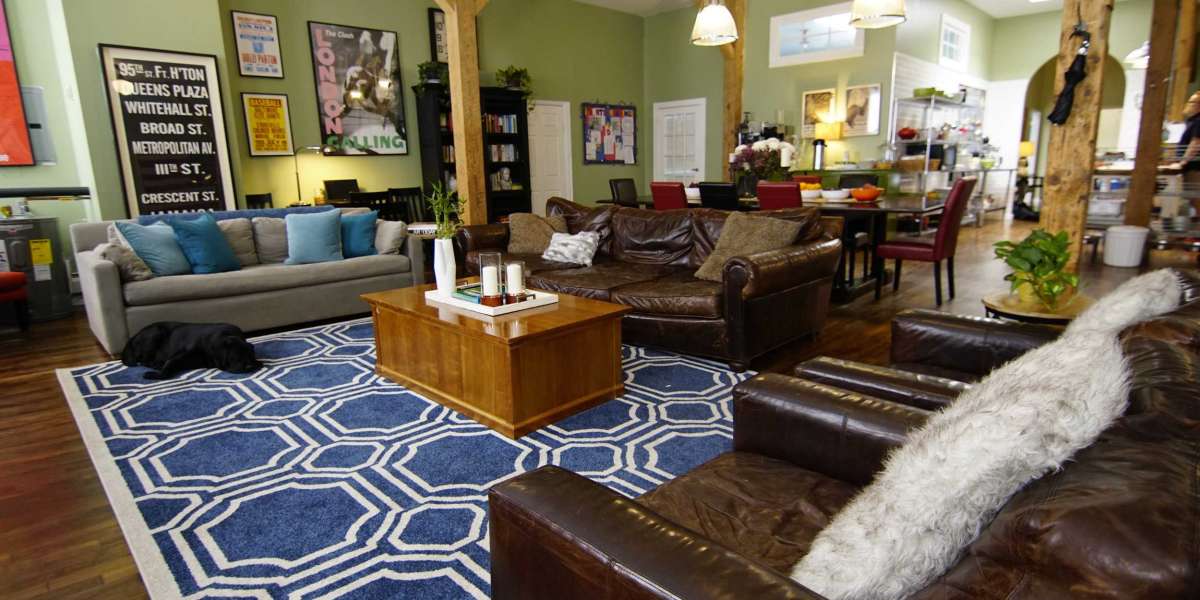Sober living houses, or SLHs, provide safe and supportive housing for people exiting drug rehabilitation programs. They are an important bridge between these types of programs and mainstream society.
SLHs help residents build life skills that promote independent sobriety and a positive outlook on recovery. These include budgeting, time management, and social connections.
1. It’s a Safe Environment
Living in a safe environment is a key part of recovery, especially after completing a clinical treatment program. Without a supportive home environment, you can’t fully commit to your sobriety.
During your time in rehab, you learn coping skills and strategies to avoid triggers that may lead to relapse. Living in a sober living environment after treatment severely decreases your risk of relapse, and it provides a better opportunity for ongoing success in your sobriety.
Studies have shown that sober living homes provide sustainedly positive outcomes, including improved mental health and increased stability. It is also associated with lower rates of relapse, more effective treatment, and higher employment outcomes.
2. It’s a Place to Learn
Sober living is a great place to learn about yourself and your ability to succeed in a new environment. It’s a time to practice the skills and tools you learned in treatment, like establishing a schedule, taking care of yourself, and forming healthy relationships with people.
Another important skill to develop is accountability. Having to do chores, responsibilities at work, or attend 12-step meetings every day will help you to learn how to be responsible for your life and your sobriety.
Sober living homes also encourage residents to practice their life skills, including cooking, cleaning, and managing money. These skills will be invaluable once you move out and start your own apartment or house.
3. It’s a Place to Share
For people in recovery, a sober living home isn’t just a place to live. It’s also a place to form a social circle of support.
Sober living houses often have a high resident to staff ratio, meaning the staff is readily available to help you navigate your way through your new life in sobriety.
They’re also a great way to re-introduce the structure into your life that you’ve been missing. Things like personal hygiene, laundry, and a budget will all be better ingrained into your daily routine. The best part is that you’ll be doing it with a bunch of sober people who understand what you’re going through. Whether you’re just getting started in your sobriety journey or have been struggling with substance abuse for years, there’s no time like the present to make a change.
4. It’s a Place to Grow
Sober Living homes provide an ideal setting for residents to develop a strong support system and continue their journey toward recovery. They give people the space and opportunity to grow in stability, learn healthy living skills, and plan their next steps for independence.
Sobriety is a lifelong journey that requires dedication and commitment, so it’s important to find transitional resources that can help you keep moving forward. One of the most effective is sober living homes and apartments, where you can work on your goals without the temptation of drugs and alcohol.
In addition, sober living homes offer recovery support services to help you establish accountability. This means that you must adhere to household rules and requirements, meet at house meetings regularly, and maintain an ongoing sobriety program.
5. It’s a Place to Find Independence
Sober Living is a transitional housing arrangement that provides individuals in recovery with a more independent way of life. This housing can be a great place to start re-building practical skills like paying bills, cooking, shopping and cleaning. It can also help people in recovery re-establish relationships that will support their recovery journey.
The most important aspect of Sober Living is the opportunity to live with other people in recovery, who understand what it’s like to be a drug addict or alcoholic. They will be there to support you and share their own experiences, which can make a huge difference in your own recovery. Ultimately, you will learn how to live without drugs and alcohol and find the independence that you have been looking for!


